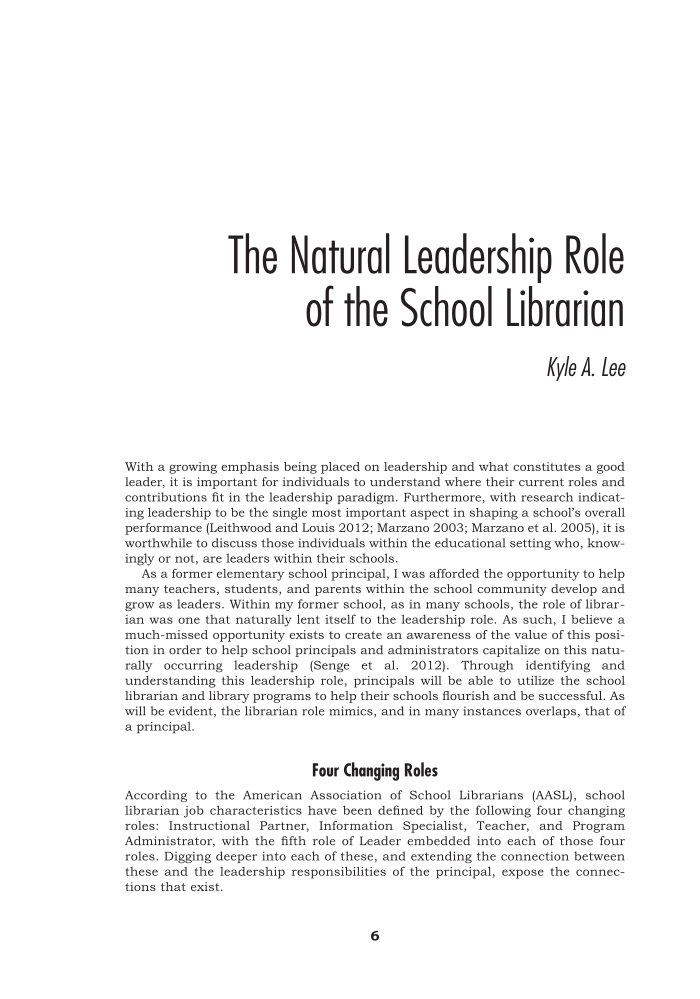6 The Natural Leadership Role of the School Librarian Kyle A. Lee With a growing emphasis being placed on leadership and what constitutes a good leader, it is important for individuals to understand where their current roles and contributions fit in the leadership paradigm. Furthermore, with research indicat- ing leadership to be the single most important aspect in shaping a school’s overall performance (Leithwood and Louis 2012 Marzano 2003 Marzano et al. 2005), it is worthwhile to discuss those individuals within the educational setting who, know- ingly or not, are leaders within their schools. As a former elementary school principal, I was afforded the opportunity to help many teachers, students, and parents within the school community develop and grow as leaders. Within my former school, as in many schools, the role of librar- ian was one that naturally lent itself to the leadership role. As such, I believe a much-missed opportunity exists to create an awareness of the value of this posi- tion in order to help school principals and administrators capitalize on this natu- rally occurring leadership (Senge et al. 2012). Through identifying and understanding this leadership role, principals will be able to utilize the school librarian and library programs to help their schools flourish and be successful. As will be evident, the librarian role mimics, and in many instances overlaps, that of a principal. Four Changing Roles According to the American Association of School Librarians (AASL), school librarian job characteristics have been defined by the following four changing roles: Instructional Partner, Information Specialist, Teacher, and Program Administrator, with the fifth role of Leader embedded into each of those four roles. Digging deeper into each of these, and extending the connection between these and the leadership responsibilities of the principal, expose the connec- tions that exist.
Document Details My Account Print multiple pages
Print
You have printed 0 times in the last 24 hours.
Your print count will reset on at .
You may print 0 more time(s) before then.
You may print a maximum of 0 pages at a time.











































































































































































































































































































































